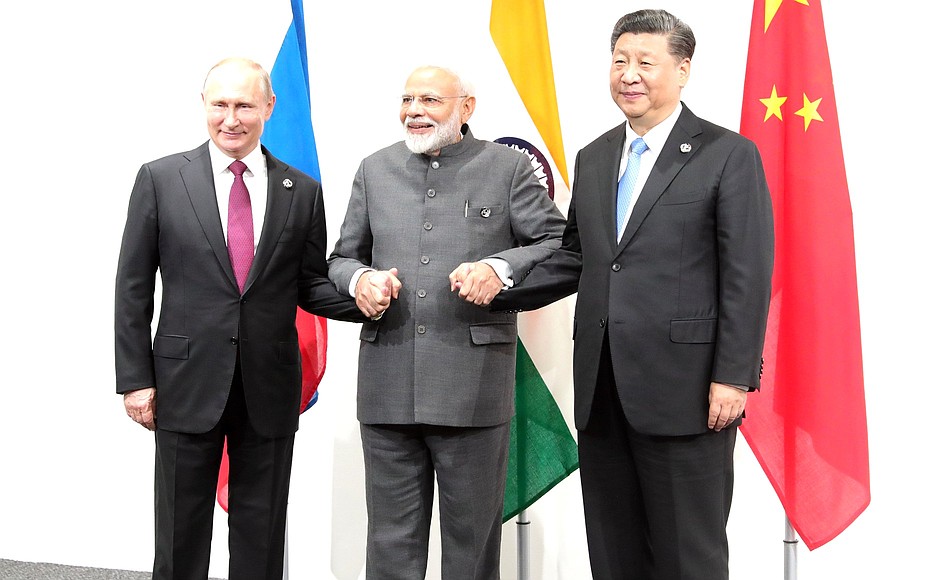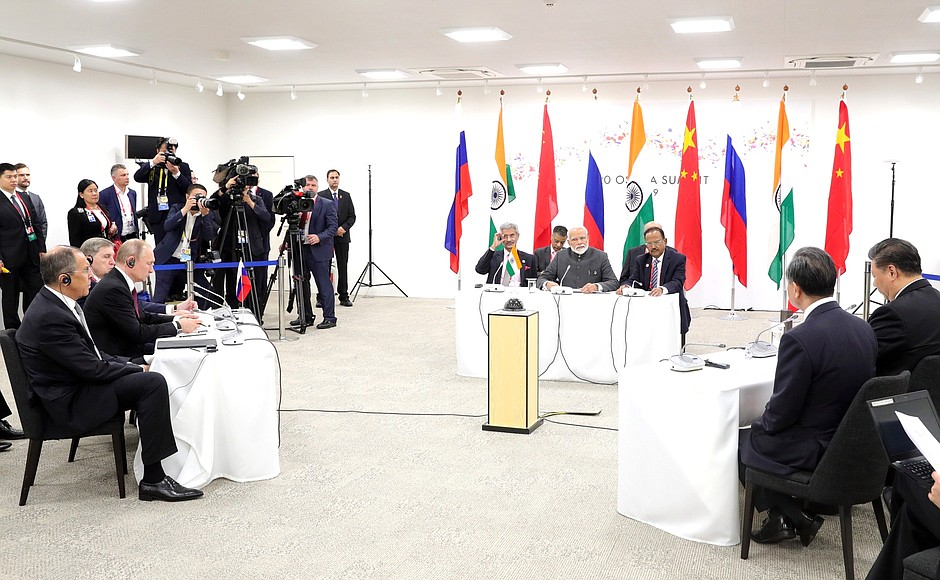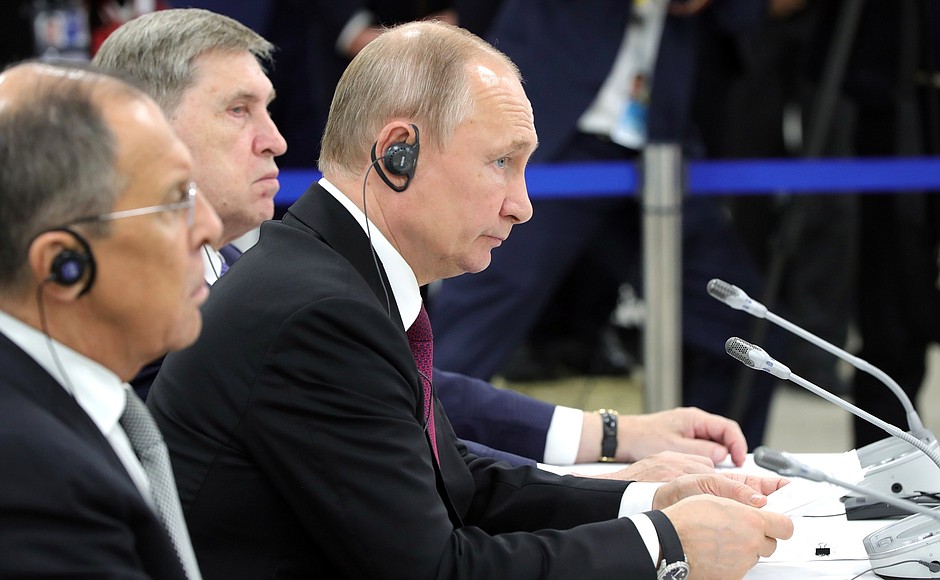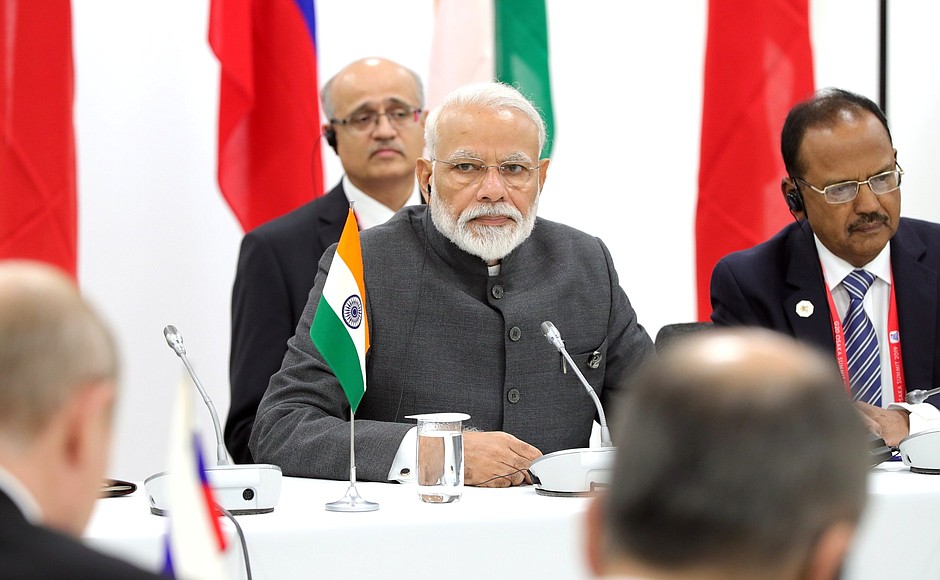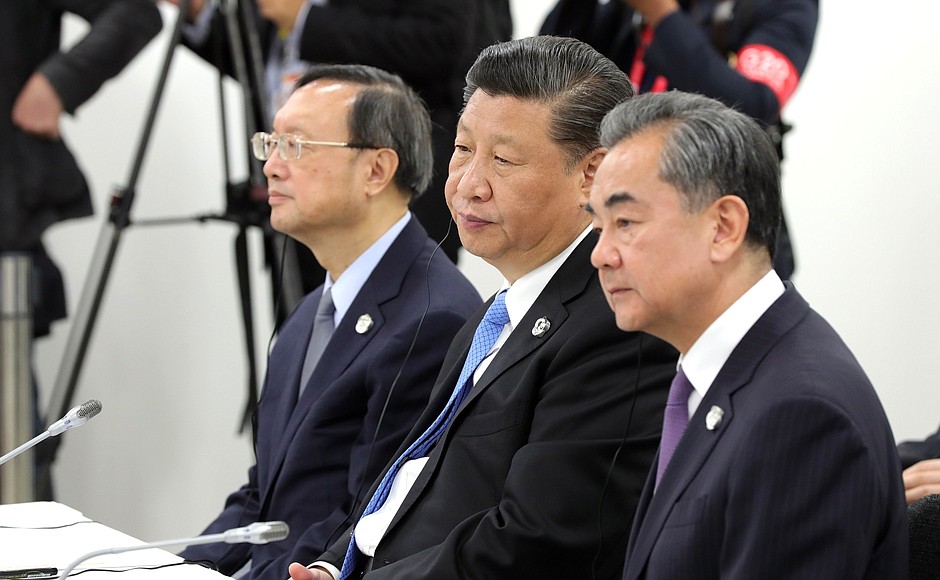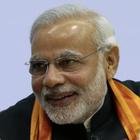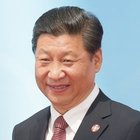Prime Minister of the Republic of India Narendra Modi (retranslated): Your Excellencies, Mr Xi Jinping, Mr Putin,
Last year, our three countries held a summit in Argentina after a long interval. After a very useful exchange of opinions on key global matters, we decided to meet again in the future. Today, I am absolutely delighted to be greeting you all at this unofficial Russia-India-China gathering.
Mutual exchange of opinions on the status of the global economy, politics and security between us as key world economies has special significance. This trilateral meeting between us today is a very useful tool for discussing and coordinating our positions on a number of international matters.
Our foreign ministers have exchanged opinions on a number of topics during the February 2019 meeting in China. These matters include the fight against terrorism, international hotbeds of tension, the problems of a multilateral approach, climate change, and higher Russia-India-China cooperation.
And now, I would like Xi Jinping to voice his remarks.
President of the People’s Republic of China Xi Jinping (retranslated): It is a real pleasure for me to meet with Mr Putin and Mr Modi at this unofficial Russia-India-China meeting. I would like to thank India for organising and preparing this event.
In November, we had very successful talks in Buenos Aires, and we are now meeting once again here in Osaka seven months later.
China, Russia and India are countries boasting huge emerging markets, and we are jointly committed to solidarity and cooperation. I would like to conduct a profound exchange of opinions, as regards the economic situation as well as the problems concerning RIC cooperation, with Mr Putin and Mr Modi.
Thank you.
Narendra Modi: And now, I would like to give the floor to Mr Putin.
President of Russia Vladimir Putin: Prime Minister Modi, President Xi Jinping,
The joint work in the Russia-India-China format is obviously beneficial both in terms of developing and strengthening relations directly between our countries and in terms of the contribution our three countries make to resolving acute international and regional problems.
I note that in line with the understandings reached at our last meeting in Buenos Aires, cooperation within the RIC framework has become noticeably more active. The trilateral foreign policy coordination has been growing. In February our foreign ministers had another, now the 16th round of consultations. The dialogue of our security councils, financial intelligence agencies and other sectoral institutions has been developing concurrently. Representatives of the scientific, academic and young people’s communities are interacting closely. In this context, I note that Russia will host a festival of young diplomats from the RIC countries this autumn. Friends, we hope your countries will be actively involved.
It is important that Russia’s, India’s and China’s positions are close or coincide on most issues of the world economic and political agenda. Our countries stand for the preservation of the system of international relations with the UN Charter and international law at its core. We assert such fundamental principles of international ties as respect for sovereignty and non-interference in countries’ internal affairs.
Russia, India and China are jointly working for stronger global stability, combatting the terrorist threat, extremism, drug trafficking and cybercrime, and thus are laying the foundation for equal and indivisible security architecture in Eurasia.
Good results have been produced by the three-party coordination of approaches to the most significant issues on the agenda of key international organisations, such as the UN, BRICS, the Shanghai Cooperation Organisation, where Russia has recently assumed the presidency, and, of course, the G20.
I think our countries, for example, could jointly advocate greater authority of the World Trade Organisation and the preservation of its role as a universal entity regulating international trade. Joint support of the efforts to reform the International Monetary Fund is another important task.
In a broader context, our cooperation in the RIC format could become a model for establishing an up-to-date, just and multipolar world order that rejects protectionism, the policy of unilateral actions and illegitimate sanctions.
In conclusion, I want to express my gratitude to our Indian colleagues and Prime Minister Modi personally for the preparation of today’s meeting.
Thank you.
<…>
